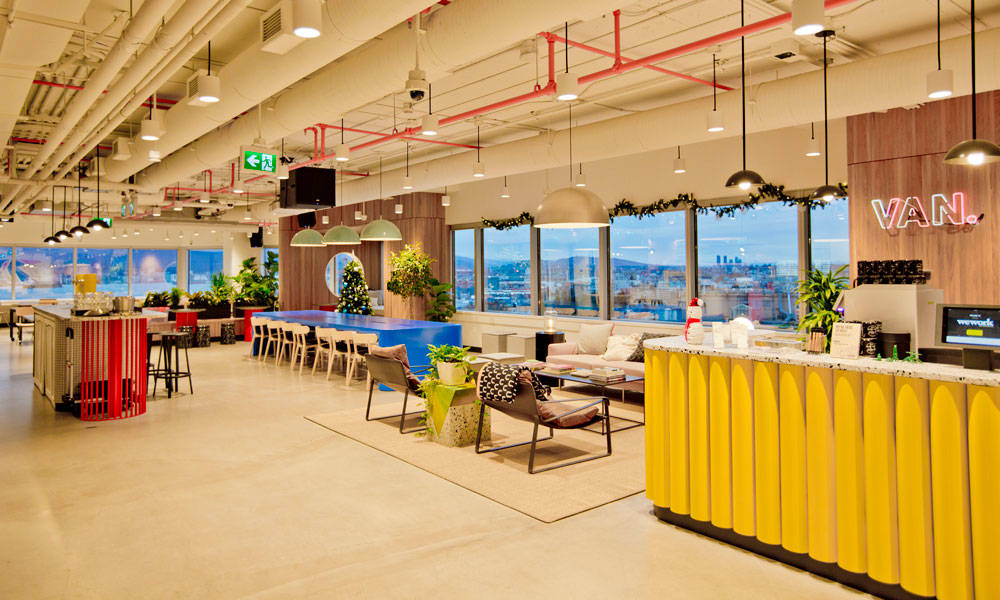
How WeWork Is Shaking Up the Modern Office Landscape
The coworking giant has encouraged new takes on traditional office space—and its aggressive growth is leading to a surge in competition. Next time you're looking for office space, you may find unexpected new options.
In just a few years—and seemingly out of nowhere—the modern office landscape has been completely redefined into a hip, open environment.
The culprit? The shared-office innovators at WeWork, whose aggressive push to take on leases from large office buildings and reinvent them as coffee-shop-style workspaces has made the company a modern-day office-space behemoth. As Quartz recently noted, the company has more than 400,000 members in 99 cities in 26 countries, and nearly a third of the Fortune 500 has a seat or 10 at a WeWork location.
But while the company has successfully turned shared office space into a mainstream phenomenon, competitors are starting to freely borrow the formula. At the same time, WeWork is getting pushback on its aggressive expansion plans. Bloomberg notes that WeWork started by leasing office space from major real estate owners, but in recent months, it has taken to making its own real estate investments, creating friction with commercial real estate investors that it traditionally courted as partners.
Tony Malkin, CEO of Empire State Realty Trust, the firm that owns the Empire State Building, told the news outlet that WeWork has moved away from the idea of simply bringing in small startups; it now designs and books entire multi-floor offices for some of its larger tenants.
“I think now we’ve seen—particularly with WeWork and other providers’ expansion into the enterprise solution—that it’s really much more about disrupting the relationship of tenants to landlords, of tenants to brokers, of brokers to landlords,” said Malkin, who has thus far refused to collaborate with the company.
More rivals are borrowing WeWork’s signature tactics. For example, CBRE, which frequently leases office space to WeWork, recently launched a competing coworking firm named Hana. Other major commercial real estate firms have started to team with WeWork competitors, but with the deals structured in a way that gives the landlord more upside if the coworking space is a success.
WeWork still has some tricks up its sleeve, however: GeekWire reports that its new concept, WeWork Labs, combines coworking space with startup incubation features, including mentoring and talent resources.
So when associations find themselves in the market for new office space in 2019, they can expect to encounter a landscape that’s drastically different from just a few years ago.
A WeWork space in Vancouver, Canada. (GoToVan/Flickr)






Comments